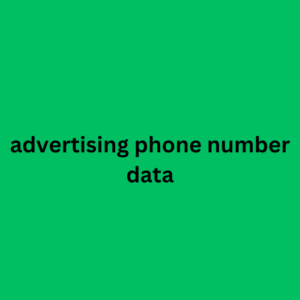Small businesses and startups looking for an all-in-one marketing platform.
Posted: Wed Dec 04, 2024 10:37 am
Basic automation. Supports basic automation workflows and autoresponders, enough for small businesses to stay in touch with their audience.
Audience segmentation. Lets you segment your email lists based on various criteria for targeted campaigns.
API and integrations. Connects with CMS platforms like WordPress and Shopify.
Analytics. Provides metrics to track email campaign performance.
Limitations
Limited advanced features. As your business grows, you may find Sender’s automation and CRM capabilities insufficient.
Basic A/B testing. Doesn’t offer more detailed testing options that some businesses might need.
Fewer integrations. Has fewer third-party integrations compared to some competitors, which could limit your marketing stack. For example, it may not directly integrate with tools like Salesforce, Zapier, or Magento.
Scalability. Might not be the best fit for larger enterprises with complex marketing needs.
No landing page builder. You’ll need to use another tool if you require landing pages.
Best for
Small businesses that need basic to moderate features.
Pricing
Free plan. Up to 15,000 emails/month with 2,500 subscribers.
Paid plan. Starts at $19/month for 30,000 emails and 2500 subscribers/month. Advertising Phone Number Data Advanced features are available in higher tiers.
Best Sender alternatives compared
Now that we’ve reviewed what Sender can and can’t do, let’s look at some of the best alternatives that might better suit your needs.
Higher costs for large lists. Pricing increases significantly with more contacts, making it expensive as your business grows.
Limited tagging. It can’t tag contacts based on their actions, making segmentation difficult. For example, if someone opens an email sent via Mailchimp, it can’t tag that person as “opened” or “unsubscribed.”
If you need more precise targeting, consider Mailchimp alternatives.
Best for

Pricing
Free plan. Basic features for up to 500 contacts.
Paid plan. Mailchimp prices start at $13 per month.
4. HubSpot
HubSpot interface
Why HubSpot might be right for you
Full CRM integration. Combines CRM with its marketing tools, allowing you to manage customer relationships and marketing efforts from one platform.
Marketing automation platform. Advanced features like workflow automation, lead nurturing, and triggered emails help streamline your marketing processes.
Where HubSpot might fall short
Expensive. Higher tiers are pricier than other email platforms. For example, the second tier starts at $800/month for 2,000 contacts, making it costly for professionals.
Complex setup. Getting everything set up, especially the advanced features, can take time and may require dedicated resources. This makes it less convenient if you’re short on time or technical know-how.
Best for
Businesses looking for an all-in-one marketing, sales, and CRM platform. It’s particularly beneficial for companies with complex marketing needs. If you’re looking for something simpler, you might want to consider HubSpot alternatives.
Audience segmentation. Lets you segment your email lists based on various criteria for targeted campaigns.
API and integrations. Connects with CMS platforms like WordPress and Shopify.
Analytics. Provides metrics to track email campaign performance.
Limitations
Limited advanced features. As your business grows, you may find Sender’s automation and CRM capabilities insufficient.
Basic A/B testing. Doesn’t offer more detailed testing options that some businesses might need.
Fewer integrations. Has fewer third-party integrations compared to some competitors, which could limit your marketing stack. For example, it may not directly integrate with tools like Salesforce, Zapier, or Magento.
Scalability. Might not be the best fit for larger enterprises with complex marketing needs.
No landing page builder. You’ll need to use another tool if you require landing pages.
Best for
Small businesses that need basic to moderate features.
Pricing
Free plan. Up to 15,000 emails/month with 2,500 subscribers.
Paid plan. Starts at $19/month for 30,000 emails and 2500 subscribers/month. Advertising Phone Number Data Advanced features are available in higher tiers.
Best Sender alternatives compared
Now that we’ve reviewed what Sender can and can’t do, let’s look at some of the best alternatives that might better suit your needs.
Higher costs for large lists. Pricing increases significantly with more contacts, making it expensive as your business grows.
Limited tagging. It can’t tag contacts based on their actions, making segmentation difficult. For example, if someone opens an email sent via Mailchimp, it can’t tag that person as “opened” or “unsubscribed.”
If you need more precise targeting, consider Mailchimp alternatives.
Best for

Pricing
Free plan. Basic features for up to 500 contacts.
Paid plan. Mailchimp prices start at $13 per month.
4. HubSpot
HubSpot interface
Why HubSpot might be right for you
Full CRM integration. Combines CRM with its marketing tools, allowing you to manage customer relationships and marketing efforts from one platform.
Marketing automation platform. Advanced features like workflow automation, lead nurturing, and triggered emails help streamline your marketing processes.
Where HubSpot might fall short
Expensive. Higher tiers are pricier than other email platforms. For example, the second tier starts at $800/month for 2,000 contacts, making it costly for professionals.
Complex setup. Getting everything set up, especially the advanced features, can take time and may require dedicated resources. This makes it less convenient if you’re short on time or technical know-how.
Best for
Businesses looking for an all-in-one marketing, sales, and CRM platform. It’s particularly beneficial for companies with complex marketing needs. If you’re looking for something simpler, you might want to consider HubSpot alternatives.